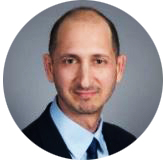HEAT PPCI: Results Favoring Heparin over Bivalirudin Raise Scientific, Ethical Issues
WASHINGTON, DC—In addition to causing a stir by demonstrating worse outcomes with bivalirudin than heparin in patients with ST-segment elevation myocardial infarction (STEMI), the HEAT PPCI trial, presented March 31, 2014, at the annual American College of Cardiology/i2 Scientific Session, created controversy over ethical concerns and a peculiar ‘delayed’ informed consent policy.
Adeel Shahzad, MD, of Liverpool Heart and Chest Hospital (Liverpool, United Kingdom), and colleagues looked at 1,829 STEMI patients receiving primary PCI at their institution between February 2012 and November 2013, randomizing them to receive either unfractionated heparin (n = 907) or bivalirudin (n = 905) preprocedure. Abciximab was used on a selective basis as bailout medication.
The primary efficacy outcome of MACE (all-cause mortality, stroke, reinfarction, and TLR) was more common in the bivalirudin group at 28 days, as was stent thrombosis. Major or minor bleeding, meanwhile, was similar between the groups (table 1).
Table 1. Outcomes at 28 Days
|
|
Bivalirudin |
Heparin |
RR (95% CI) |
P Value |
|
MACE |
8.7% |
5.7% |
1.52 (1.1-2.1) |
0.01 |
|
Definite or Probable Stent Thrombosis |
3.4% |
0.9% |
3.91(1.6-9.5) |
0.001 |
|
Major Bleeding |
3.5% |
3.1% |
1.15 (0.7-1.9) |
0.59 |
|
Major or Minor Bleeding |
12.5% |
13.5% |
_ |
0.54 |
For use of heparin rather than bivalirudin, the number needed to treat to prevent 1 major adverse event was 33.
The results remained consistent across multiple prespecified subgroups.
Panel co-chair Gregg W. Stone, MD, of Columbia University Medical Center (New York, NY), started off his comments with some major concerns. "One of them is scientific and one of them ethical,” he said. “Results of this single-center study are markedly different from 3 other randomized trials in 250 centers with more than 8,000 patients and more than 2.5 million patients from registry series. What I’m struck with is that in particular, the TLR, reinfarction, and stent thrombosis rates being three- to four-fold higher in the bivalirudin arm suggests to me strongly that you underdosed bivalirudin.”
Dr. Shahzad countered that the rates of stent thrombosis with bivalirudin in the current trial, the primary driver of the higher MACE rates, are consistent with stent thrombosis rates from previous trials such as HORIZONS-AMI.
Delayed Consent Equals Experimentation?
What overshadowed the clinical results, though, were concerns about the informed consent process used in the study, which Dr. Shahzad called “delayed” consent, obtained from patients after treatment and during recovery.
Panelist William W. O’Neill, MD, of Henry Ford Medical Center (Detroit, MI), observed that, “I think most of us have a very strong ethical concern. I would hold the leaders of your organization accountable. There just is an absolute social contract with our patients to make sure they’re not subject to research without their permission, and the biggest problem, I still am extremely bothered that you entered patients into a research study without getting their permission.”
Dr. Shahzad countered that his group received full United Kingdom approval for the study as well as by 3 separate national bodies. “We’re not advocating use of delayed consent globally for all trials,” he said. “But normal informed consent is not possible when approaching patients in pain in this setting.”
Still, Dr. Stone expressed hope that “we’ve not entered an era where we’re experimenting on humans without their consent. STEMI issues have been consented for 30 years.”
Note: Dr. Stone is a faculty member of the Cardiovascular Research Foundation, which owns and operates TCTMD.
Source:
Shahzad A. How Effective are Antithrombotic Therapies in PPCI (HEAT PPCI). Presented at the American College of Cardiology/i2 Annual Scientific Session. March 31, 2014. Washington, DC.
Disclosures:
-
Dr. Shahzad reports no relevant conflicts of interest.
Related Stories:
Jason R. Kahn, the former News Editor of TCTMD, worked at CRF for 11 years until his death in 2014…
Read Full Bio

Comments